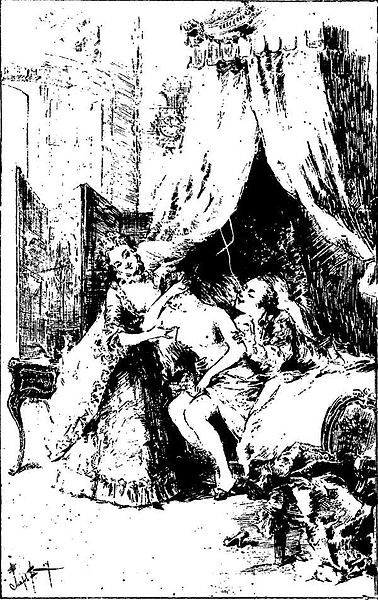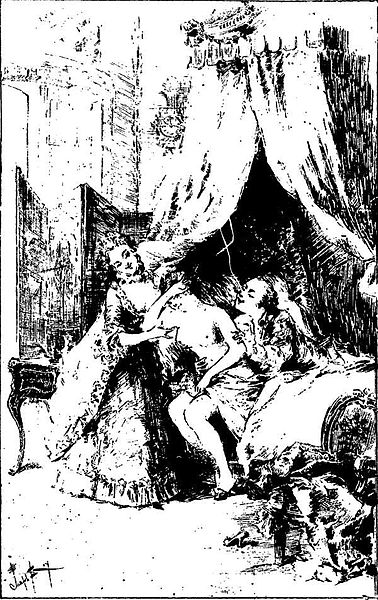
Content warning: This article discusses rape and sexual abuse.
Over winter break, I picked up JM Coetzee’s “Late Essays” in a San Francisco bookstore. In it I encountered one of two misreadings by authors — male writers I adore — that gently sidestepped what seemed to me to be glaring depictions of sexual assault. Coetzee’s first review discusses the 18th-century English novel “Roxana” by Daniel Defoe, which I happened to have read during fall quarter. The book is a strange one, following narrator-protagonist Roxana as she, abandoned and left destitute by her first husband, begins a quest for material security. Her wealth is largely secured by transitioning from male lover to male lover, whoever seems to hold more fiscal promise. The novel is notable for its lack of a clear narrative arc, and Roxana’s seemingly interminable cataloguing of her material wealth. Coetzee argues that Defoe’s moments (rather, pages and pages) of repetition are harbingers of a sort of literary realism.
I was most drawn to the part of Coetzee’s essay in which he characterizes Roxana’s sexual psychology. He writes, “Given how central Roxana’s sexual allure is to the action of the book, it is surprising how little we discover of [Roxana’s] erotic psychology. Is sexual pleasure important to her, or is sex simply a means to an end?”
There is a strange ambiguity in the text about many of Roxana’s sexual encounters with men. Does she want the sex? Does she like it? Coetzee argues for a sort of psychology of seduction in which Roxana retroactively deems her sexual forays “irresistible” in order to deny her own moral agency and thus excuse her own un-Puritan (lustful) motives.
Coetzee’s first example of sex, however, centers not on Roxana, but her maidservant, Amy, in what Coetzee calls an “extended erotic game between Roxana, her … husband, and … Amy, a game in which the two women excite and goad each other on until copulation ensues.”
Coetzee implies an almost lighthearted push and pull between Roxana and Amy in the husband’s bedroom. Looking back at the text, a very different picture unfolds: Roxana, trying to coax Amy to sleep with her husband, says to Amy, “go, you Fool … but Amy would not go.” Again, Roxana belittles her servant: “You whore … ” and when Amy resists, Roxana “sat her down, pulled off her stockings and shoes, and all her clothes, piece by piece, and led her to the bed to him.” Roxana continues (in the first person): “[Amy] pulled back a little, would not let me pull off her clothes at first … at last … I fairly stript her, and then I threw [her] upon the bed, and thrust her in … he held her fast, and the wench being naked in the bed with him, ‘twas too late to look back, so she lay still and let him do what he wou’d with her.”
Does this scene reveal something of the way Roxana uses sex to wield power over others (here, Amy; later, men)? Indeed. But it is also not the coy, triangulated game that Coetzee makes it out to be. Amy does not “goad,” and the “ensuing copulation” remains passively ambiguous about Amy’s consent. This scene is not ambiguous. It is a scene of rape.
Coetzee tries to make this distinction later on in the essay: “The truth is that sexual seduction is always resistible: It is precisely its being resistible that distinguishes it from rape.” But while he acknowledges that there is a difference, he still fails to see that difference as it distinguishes Amy’s assault from Roxana’s “psychology of seduction,” which is a very different phenomenon that involves Roxana’s attraction to the act of seduction more than to sex itself.
It makes sense, in light of Coetzee’s oeuvre, that he would gloss over the scene with Amy. He writes about the psychology of seduction. He’s obsessed with the boundaries between consensual and nonconsensual sex, and his narratives (most notably “Disgrace”) hover in that uncomfortable liminal space. He takes this opportunity to fit “Roxana” into the scheme; after all, it is an essay: He has to take a stance, and he can’t cover everything. Parts of “Roxana,” with the main character’s strangely opaque internality and the vast array of plausible motives for her sexual endeavors, do fit Coetzee’s interpretation. But “Roxana” does not only portray the erotic game of seduction; it displays animal desire and Puritan guilt commingling with other more nefarious (or more externally driven) factors that make Roxana, and women like her, have sex. Coetzee recognizes some of these, but for me, his other evaluations of more nuanced sexual encounters are tainted by his initial, overt misreading.
In the light of stories like “Cat Person,” conversations about consent, bad sex vs. assault and the #MeToo movement, these distinctions feel particularly relevant, but this misreading wouldn’t have been so notable for me had I not had a strangely similar experience a few days earlier. I was on a run in the eerily deserted suburbia that constitutes my neighboring town, listening (as one does) to The New Yorker’s fiction podcast. In it, a famous author chooses another famous author’s short story, reads it out loud, and Deborah Treisman, fiction editor for The New Yorker, leads a conversation about the piece. In this episode, lauded poet and essayist Ben Lerner reads John Berger’s story “Woven, Sir.” The story is set in a hotel in Madrid, but it is continually interrupted by the narrator’s past in the form of ghosts and memories, specifically one of an old schoolmaster, Tyler. These recollections are saturated with phallic imagery, the schoolmaster’s requests for the boy growing increasingly personal, his euphemistic, domineering language increasingly transparent, until it becomes undeniably clear that – among other themes like mythology, memory and work – this is a story of sexual abuse. It is not a condemnation or a justification of the situation (though I suspect Berger was trying to show something of the fear, love and confusion that constitute this kind of relation for a boy who experiences it), but it is certainly present.
Ben Lerner, however, in the post-narrative conversation, focuses entirely on metafictional and Marxist interpretations. Interesting as they were, by the end I had to pause my run, half-confused, half-indignant: Did he not see that there was clearly something else going on here? Only in the last few minutes of the conversation did Deborah Treisman bring up the possibility that there was a pedophiliac undertone. She cites the jacket cover (which alludes to a pedophiliac teacher) and Lerner responds, shocked, “Well that changes things … ” And it does; the two discuss the ramifications of this new insight thoughtfully and un-defensively (listen from 36:00-38:15). Still, I felt a little dismayed as I ran home.
These experiences aren’t meant to denigrate Coetzee or Lerner, two authors whom I generally admire. We can’t expect every person to catch every layer of meaning or to make no mistakes in their analyses (that’s why we have thoughtful friends like Deborah Treisman, who read the back of the book). And stories like Berger’s are often symbolic or understated in order to give a realistic depiction of a man processing an interaction that was deeply formative and complex.
But it’s precisely the fact that Coetzee and Lerner are generally thoughtful, feeling readers that these interpretive omissions are important. It makes me think of the aphorism, “We don’t see what we aren’t looking for.” In general, this is a truth about humans: We all fall into habits of interpretation, we like to recognize patterns in the world around us and (particularly for the scholarly inclined) we become obsessed with our own theses. But the point of cultivating close reading skills, of being a writer and a reader, is to avoid falling into the trap of this adage. We learn to read well so that we can do precisely what is not natural, to see what we are not looking for. When we read well, books become training grounds for truth-seeing. And what’s on the page – if we really look – often forces us to change our minds. Our conclusions should not precede our engagement with the source material, whether that be a news report or an 18th-century precursor to literary realism.
“Roxana” and “Woven, Sir” were good reminders that we should hold each other accountable for the language we use, and that we should not allow our great writers to be careless readers.
Contact Emma Heath at ebheath ‘at’ stanford.edu.
